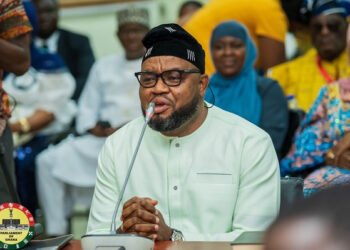Ethiopia’s Prime Minister Abiy Ahmed announced on Sunday evening that peace talks would begin on Tuesday with the OLA, a rebel group active in the country’s largest and most populous region of Oromia, which surrounds the capital Addis Ababa.
“Peace negotiations” with the Oromo Liberation Army (OLA) “will begin on Tuesday in Tanzania,” Mr Abiy said. “The Ethiopian government and people are in dire need of this negotiation (…) I call on everyone to play their part.
In a statement issued overnight, the OLA “confirms Abiy Ahmed’s statements and can attest that the Ethiopian regime has accepted our conditions for peace negotiations, which include the participation of an independent third party mediator and a commitment to maintain transparency throughout the process”.
“Since the beginning of the conflict, OLA has consistently called for peaceful dialogue as the only viable solution,” the organisation continued, “it is heartening to see that the regime has finally come to the same conclusion.
Neither Mr Abiy nor the OLA specified who the mediator would be, in which city the talks would be held and in what format.
Mr Abiy was speaking at a ceremony for participants and sponsors of the peace process in Tigray, a region in northern Ethiopia where a peace agreement signed on 2 November ended two years of conflict between the Ethiopian government and regional authorities who rebelled against the federal government.
The “official” OLA has been fighting the Ethiopian federal government since it split in 2018 with the historic Oromo Liberation Front (OLF), which renounced armed struggle that year.
It has given birth to a nebulous group of armed groups claiming to be its own but with loose links.
Estimated at a few thousand men in 2018, the OLA’s strength has increased significantly in recent years, although observers consider it insufficiently organised and armed to pose a real threat to the federal government.
The situation in Oromia is extremely confused, with internal political struggles, territorial disputes and communal animosities.
In recent years, Oromia has been the scene of ethnic massacres – the perpetrators of which are not clearly identified – particularly in the Wollegas, a remote area in the far west where they mainly target the Amhara group, which is a minority in the region.
The OLA has been repeatedly accused by Mr Abiy’s government of being responsible for these massacres, which it systematically rejects. The government is accused of indiscriminate repression that fuels Oromo resentment against the federal government in Addis Ababa.






























































